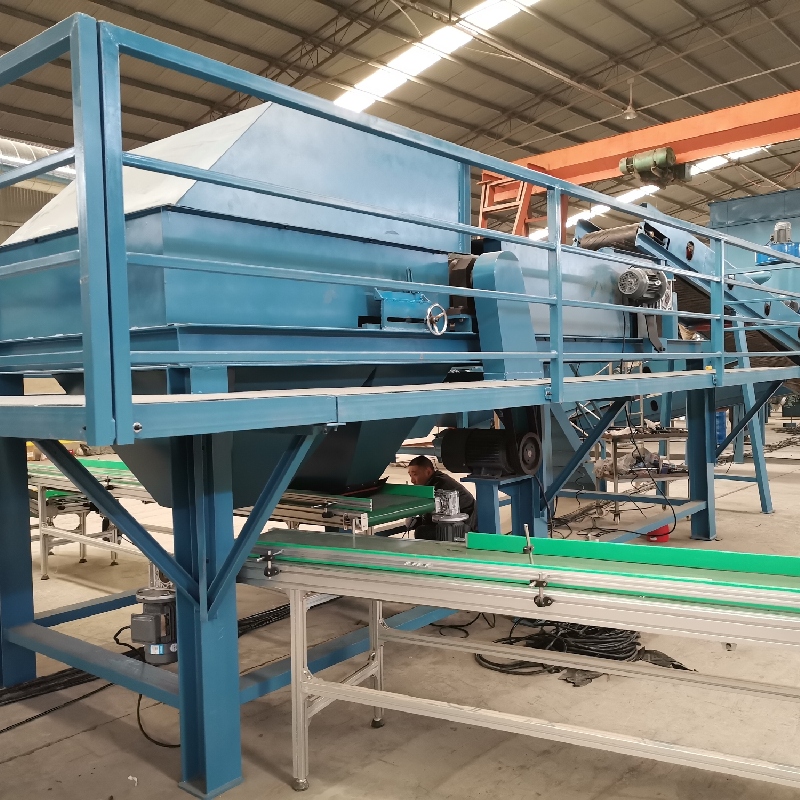

dec . 03, 2024 19:02 Back to list
How Do You Recycle Electronic Waste?
In today's digital age, electronic devices have become an integral part of our daily lives. From smartphones and laptops to tablets and household appliances, the demand for electronic gadgets is higher than ever before. Unfortunately, this surge in consumption has also led to an increase in electronic waste, or e-waste, which is one of the fastest-growing waste streams globally. Recycling electronic waste is essential for both environmental sustainability and resource conservation. In this article, we will explore the importance of recycling e-waste and the steps involved in the process.
Firstly, understanding the significance of recycling e-waste is crucial. Electronic devices contain a variety of hazardous materials, such as lead, mercury, cadmium, and brominated flame retardants, which can pose severe health risks to humans and the environment if not disposed of correctly. When e-waste ends up in landfills, these toxic substances can leach into the soil and water supply, causing pollution and irreversible damage to ecosystems. By recycling e-waste, we can prevent these harmful materials from entering the environment and ensure a safer planet for future generations.
How Do You Recycle Electronic Waste?
So, how can individuals contribute to e-waste recycling? The first step is to identify the electronic devices that are no longer in use. Common items include outdated computers, broken mobile phones, and discarded televisions. Once you’ve gathered these items, it is essential to find a responsible recycling method. Many communities have designated e-waste recycling programs that provide proper collection and disposal services. These programs ensure that e-waste is handled safely and efficiently, protecting the environment and public health.

Another option is to take advantage of manufacturer take-back programs. Many electronics manufacturers and retailers offer initiatives that allow consumers to return their old devices for recycling. These programs vary by company but generally ensure that the returned devices are dismantled, repaired, or recycled in accordance with environmental standards. Additionally, some manufacturers provide incentives, such as discounts on new purchases, to encourage consumers to participate in these programs.
For those who are tech-savvy, consider refurbishing or donating old devices instead of recycling them outright. Many organizations accept used electronics and refurbish them for resale or donation to underserved communities. This not only extends the life of the device but also provides access to technology for individuals who may not otherwise be able to afford it. Thus, repurposing old electronics can create a win-win situation for both the environment and society.
Lastly, it is crucial to educate others about the importance of e-waste recycling. By spreading awareness and encouraging friends, family, and colleagues to recycle their electronic devices, we can foster a culture of sustainability. Schools and community organizations can also play a role by holding e-waste collection drives or workshops to inform people about proper disposal methods.
In conclusion, recycling electronic waste is a vital practice that benefits both the environment and society. By properly disposing of old devices and participating in e-waste recycling initiatives, we can help mitigate the impact of e-waste on our planet. It is our collective responsibility to ensure that we manage electronic waste sustainably and safeguard our environment for future generations.
Latest news
Troubleshooting Common Eddy Separator Problems
NewsJul.04,2025
The Role of Metal Recycling Plants in Circular Economy
NewsJul.04,2025
The Impact of Recycling Line Pickers on Waste Management Costs
NewsJul.04,2025
Safety Features Every Metal Shredder Should Have
NewsJul.04,2025
How Industrial Shredders Improve Waste Management Systems
NewsJul.04,2025
How Cable Granulators Contribute to Sustainable Recycling
NewsJul.04,2025